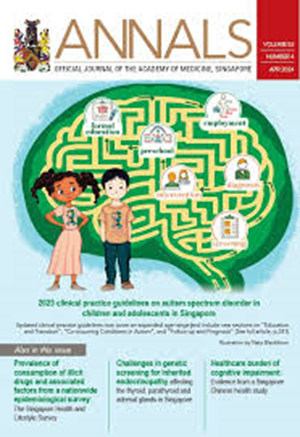持续肾脏替代治疗期间抗凝使用与90天预后的关系:一项多中心研究
IF 5.2
4区 医学
Q2 Medicine
引用次数: 0
摘要
导读:推荐在持续肾脏替代治疗(CKRT)期间抗凝治疗,以延长过滤器的使用寿命,以获得最佳的过滤器性能。我们的目的是评估CKRT期间抗凝治疗对透析依赖和重症监护病房(ICU)入院90天内死亡率的影响。方法:我们的回顾性观察性研究评估了2017年4月至9月新加坡重症急性肾损伤(AKI)成人的首次CKRT疗程。主要转归是透析依赖或ICU入院90天内死亡的综合转归;主要暴露变量是抗凝使用(局部柠檬酸抗凝[RCA]或全身肝素)。采用多变量logistic回归来调整可能的混杂因素:年龄、女性性别、急性生理和慢性健康评估(APACHE II)评分、肝功能障碍、凝血功能障碍(国际正常化比率[INR] >1.5)和血小板计数小于100,000/uL)。结果:研究队列包括来自14个成人ICU的276例患者,其中176例(63.8%)在ICU入院90天内出现透析依赖或死亡(19例透析依赖,157例死亡)。抗凝显著降低了主要结局的几率(调整优势比[AOR] 0.47, 95%可信区间[CI] 0.27-0.83, P=0.009)。采用抗凝作为3水平指标变量的Logistic回归分析显示,RCA与死亡率降低相关(AOR 0.46, 95% CI 0.25-0.83, P=0.011),肝素与RCA相关(AOR 0.51, 95% CI 0.23-1.14, P=0.102)。结论:在重症AKI患者中,CKRT期间抗凝治疗与icu入院后90天透析减少或死亡相关,局部柠檬酸盐抗凝治疗具有统计学意义,与全身肝素抗凝治疗的获益趋势相同。在CKRT期间应尽可能考虑抗凝。本文章由计算机程序翻译,如有差异,请以英文原文为准。
Association of anticoagulation use during continuous kidney replacement therapy and 90-day outcomes: A multicentre study
Introduction: Anticoagulation is recommended during continuous kidney replacement therapy (CKRT) to prolong the filter lifespan for optimal filter performance. We aimed to evaluate the effect of anticoagulation during CKRT on dialysis dependence and mortality within 90 days of intensive care unit (ICU) admission. Method: Our retrospective observational study evaluated the first CKRT session in critically ill adults with acute kidney injury (AKI) in Singapore from April to September 2017. The primary outcome was a composite of dialysis dependence or death within 90 days of ICU admission; the main exposure variable was anticoagulation use (regional citrate anticoagulation [RCA] or systemic heparin). Multivariable logistic regression was performed to adjust for possible confounders: age, female sex, Acute Physiology and Chronic Health Evaluation (APACHE II) score, liver dysfunction, coagulopathy (international normalised ratio[INR] >1.5) and platelet counts of less than 100,000/uL). Results: The study cohort included 276 patients from 14 participating adult ICUs, of whom 176 (63.8%) experienced dialysis dependence or death within 90 days of ICU admission (19 dialysis dependence, 157 death). Anticoagulation significantly reduced the odds of the primary outcome (adjusted odds ratio [AOR] 0.47, 95% confidence interval [CI] 0.27–0.83, P=0.009). Logistic regression analysis using anticoagulation as a 3-level indicator variable demonstrated that RCA was associated with mortality reduction (AOR 0.46, 95% CI 0.25–0.83, P=0.011), with heparin having a consistent trend (AOR 0.51, 95% CI 0.23–1.14, P=0.102). Conclusion: Among critically ill patients with AKI, anticoagulation use during CKRT was associated with reduced dialysis or death at 90 days post-ICU admission, which was statistically significant for regional citrate anticoagulation and trended in the same direction of benefit for systemic heparin anticoagulation. Anticoagulation during CKRT should be considered whenever possible.
求助全文
通过发布文献求助,成功后即可免费获取论文全文。
去求助
来源期刊

Annals Academy of Medicine Singapore
医学-医学:内科
CiteScore
4.90
自引率
5.80%
发文量
186
审稿时长
6-12 weeks
期刊介绍:
The Annals is the official journal of the Academy of Medicine, Singapore. Established in 1972, Annals is the leading medical journal in Singapore which aims to publish novel findings from clinical research as well as medical practices that can benefit the medical community.
 求助内容:
求助内容: 应助结果提醒方式:
应助结果提醒方式:


